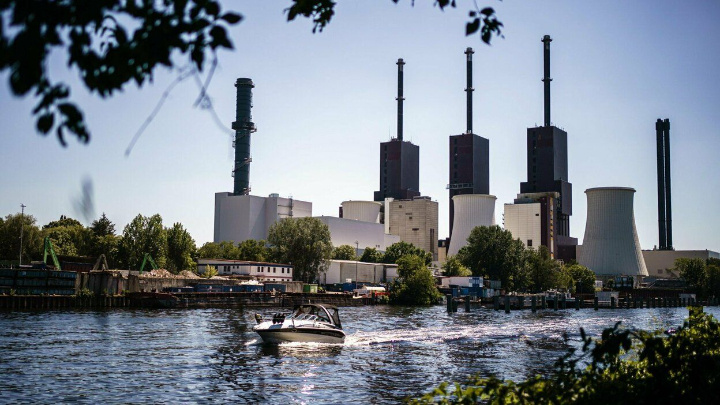Entire industries in Germany are at risk of collapse due to natural-gas supply cuts from Russia
Shining BD Desk || Shining BD
Entire industries in Germany are at risk of collapse due to natural-gas supply cuts from Russia, said Yasmin Fahimi, the country's top union official.
"The industries are in danger of collapsing permanently because of the gas bottlenecks: aluminum, glass, the chemical industry," the head of the German Federation of Trade Unions, told the German newspaper Bild am Sonntag.
She mentioned that such a collapse is set to leave a massive impact on the country’s economy and jobs, reports Insider.
Germany’s energy crisis is already driving inflation to record highs, threatening social stability, Fahimi mentioned.
The chemical industry in Germany industry, with 346,000 employees, is the third-largest sector of the country. The country is reliant on piped natural gas from Russia, which accounts for 35% of its imports of fuel.
The industrial powerhouse imports almost all of the natural gas it uses, which accounts for about a quarter of the country's total energy mix, according to Germany’s economy ministry.
Since last month, Russian state gas giant Gazprom has cut gas flows via Nord Stream 1 by 60% due to sanctions over the war in Ukraine, citing equipment hold-ups in Canada.
Germany — Europe's largest economy — moved into the second stage of its three-stage emergency gas plan last month after Russia halted the gas supplies.
Germany's economy ministry fears that the country may need to start rationing natural gas in the last of the three-stage plan.
Under the country's emergency plan, the industry would be subject to supply cuts. German business leaders and unions warn that the plan will devastate the economy and lead to job losses.
Why is Nord Stream 1 so crucial?
It is the biggest single route for Russian gas into Germany, bringing 55 billion cubic metres (bcm) a year. Germany consumed 100bcm last year.
Russian gas transits via Poland have stopped this year and those via Ukraine have been curtailed by the war, reports Reuters.
Half of German households rely on gas heating, particularly from October through March, and failure to reopen Nord Stream 1 would scupper plans to fill underground gas storage before winter.
The caverns could in theory meet national demand for 2-1/2 months, but are only 64.6% full, compared with an October 1 target of 80%.
Meanwhile, the market for alternative gas origins is tight worldwide and prices have soared since last year as demand recovers after the pandemic.
Dhaka Tribune
Shining BD






















